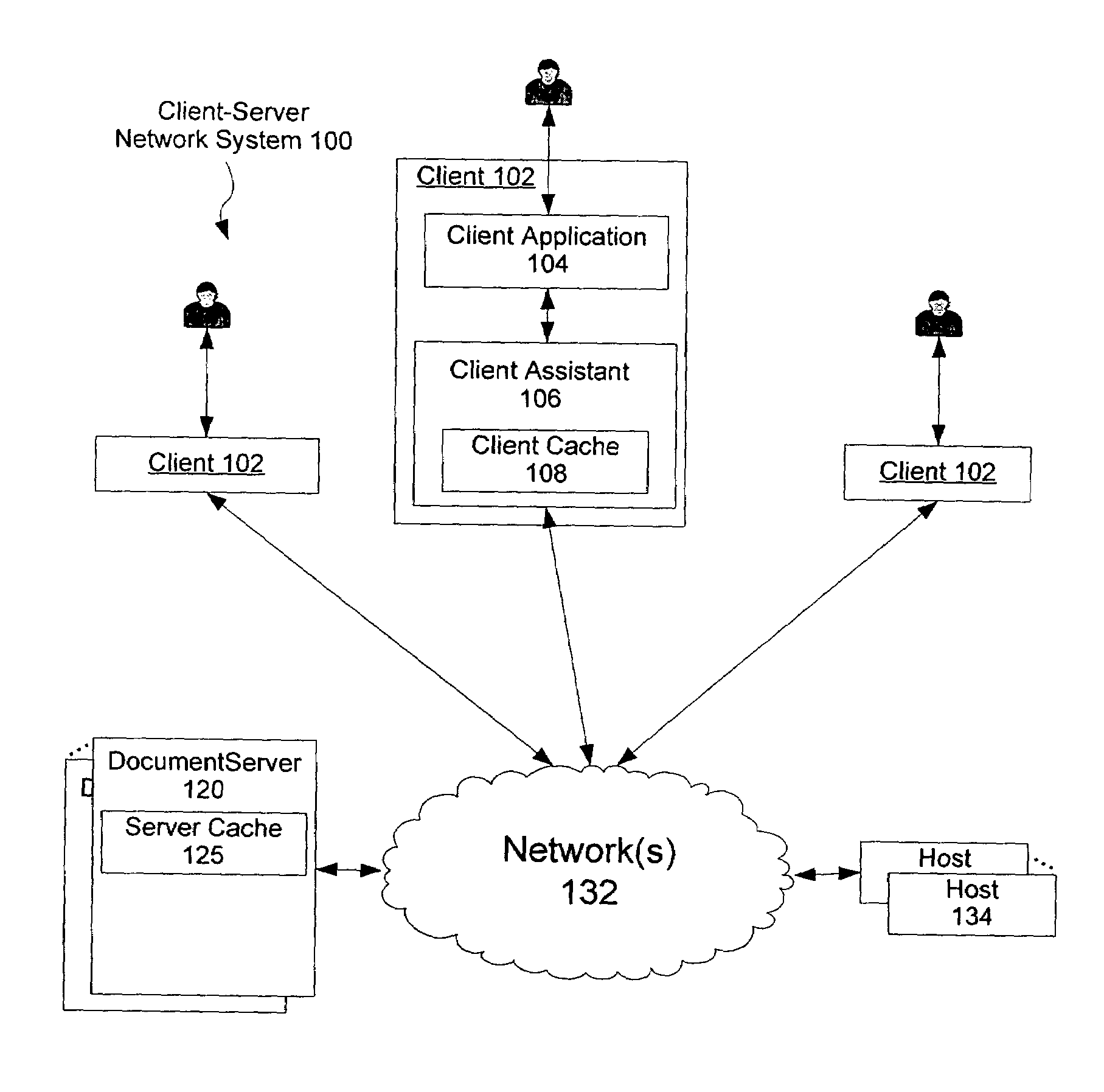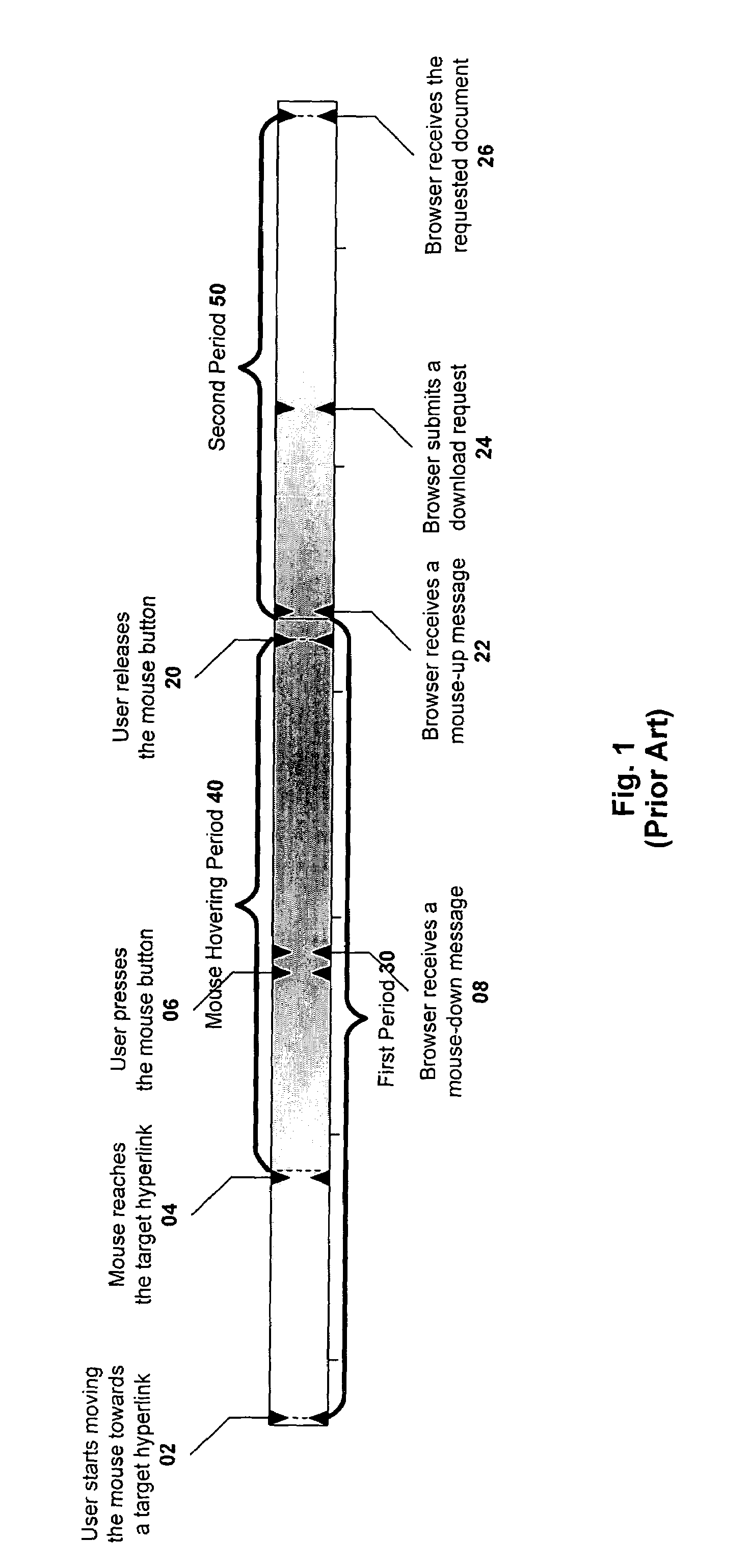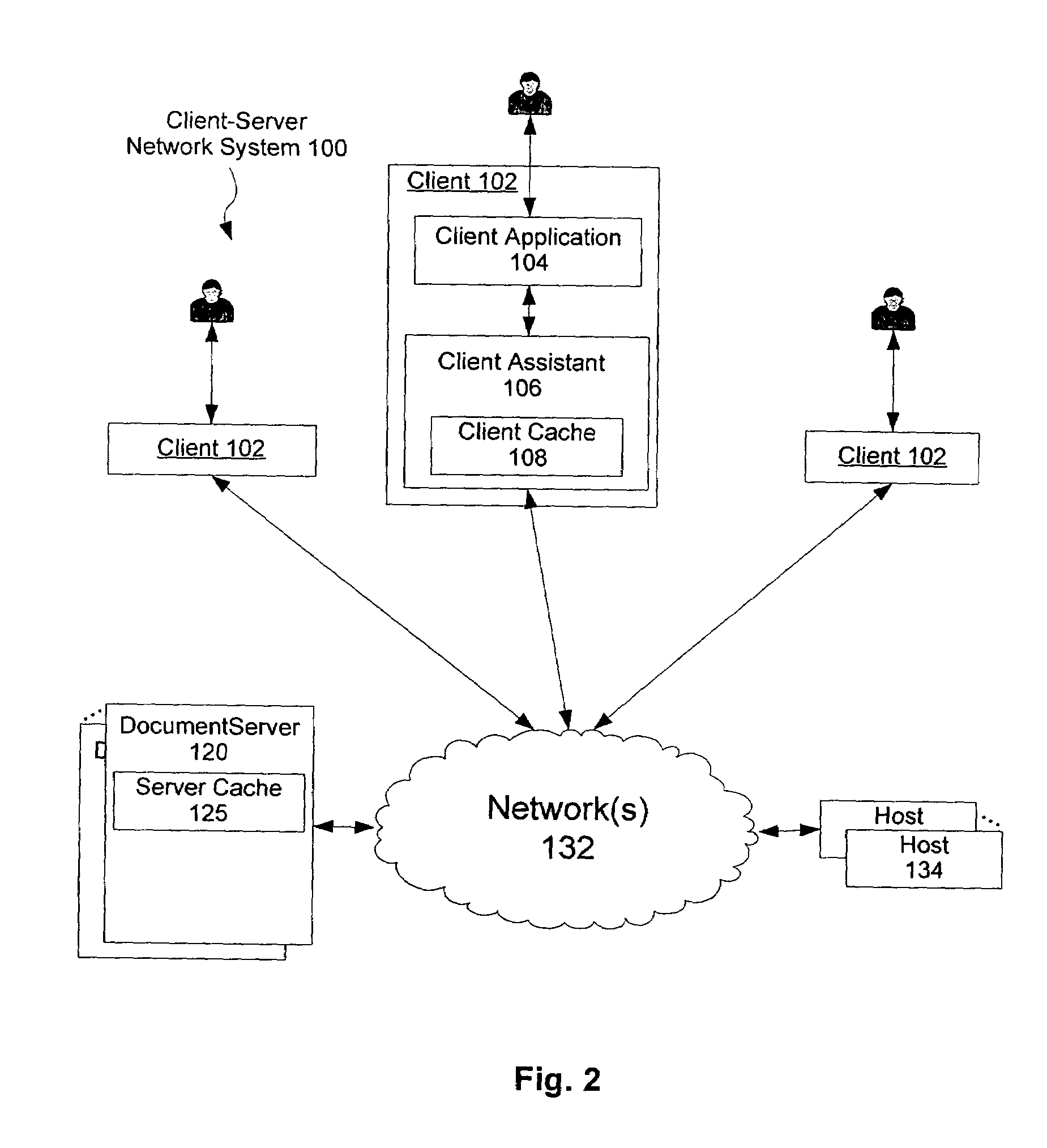Accelerating user interfaces by predicting user actions
a user interface and user action technology, applied in the direction of web data retrieval, instruments, web data navigation, etc., to achieve the effect of reducing the aforementioned latency
- Summary
- Abstract
- Description
- Claims
- Application Information
AI Technical Summary
Benefits of technology
Problems solved by technology
Method used
Image
Examples
second embodiment
[0030]In a second embodiment, the predefined criteria for initiating a document request is a mouse-down action when the mouse pointer is positioned over a hyperlink. The predefined criteria in this embodiment may be considered conservative, because the inferred document requests are almost always followed by a mouse-up action on the same hyperlink. The latency reduction in this embodiment is modest, typically on the order of 200 milliseconds.
third embodiment
[0031]In a third embodiment, the predefined criteria for initiating a document request is that the mouse pointer is positioned over and either hovers over a hyperlink for at least a threshold period of time (e.g., a period of at least 100 milliseconds), or a mouse-down on the hyperlink occurs, which ever is first. This embodiment takes advantage of a common user behavior, which is to do a mouse hover over a hyperlink before clicking on it. In yet other embodiments, other predefined criteria may be used. For instance, the predefined criteria may require a mouse hover, but the hover may be over any region within a predefined proximity of a hyperlink. Further, the predefined criteria may include multiple criteria.
[0032]A document in the client cache 108 may be deemed stale, or potentially stale, based on freshness parameters (see FIG. 3A) stored in the client cache 108. A cached document having a host specified expiration date / time is typically determined to be stale when the current d...
PUM
 Login to View More
Login to View More Abstract
Description
Claims
Application Information
 Login to View More
Login to View More - R&D
- Intellectual Property
- Life Sciences
- Materials
- Tech Scout
- Unparalleled Data Quality
- Higher Quality Content
- 60% Fewer Hallucinations
Browse by: Latest US Patents, China's latest patents, Technical Efficacy Thesaurus, Application Domain, Technology Topic, Popular Technical Reports.
© 2025 PatSnap. All rights reserved.Legal|Privacy policy|Modern Slavery Act Transparency Statement|Sitemap|About US| Contact US: help@patsnap.com



